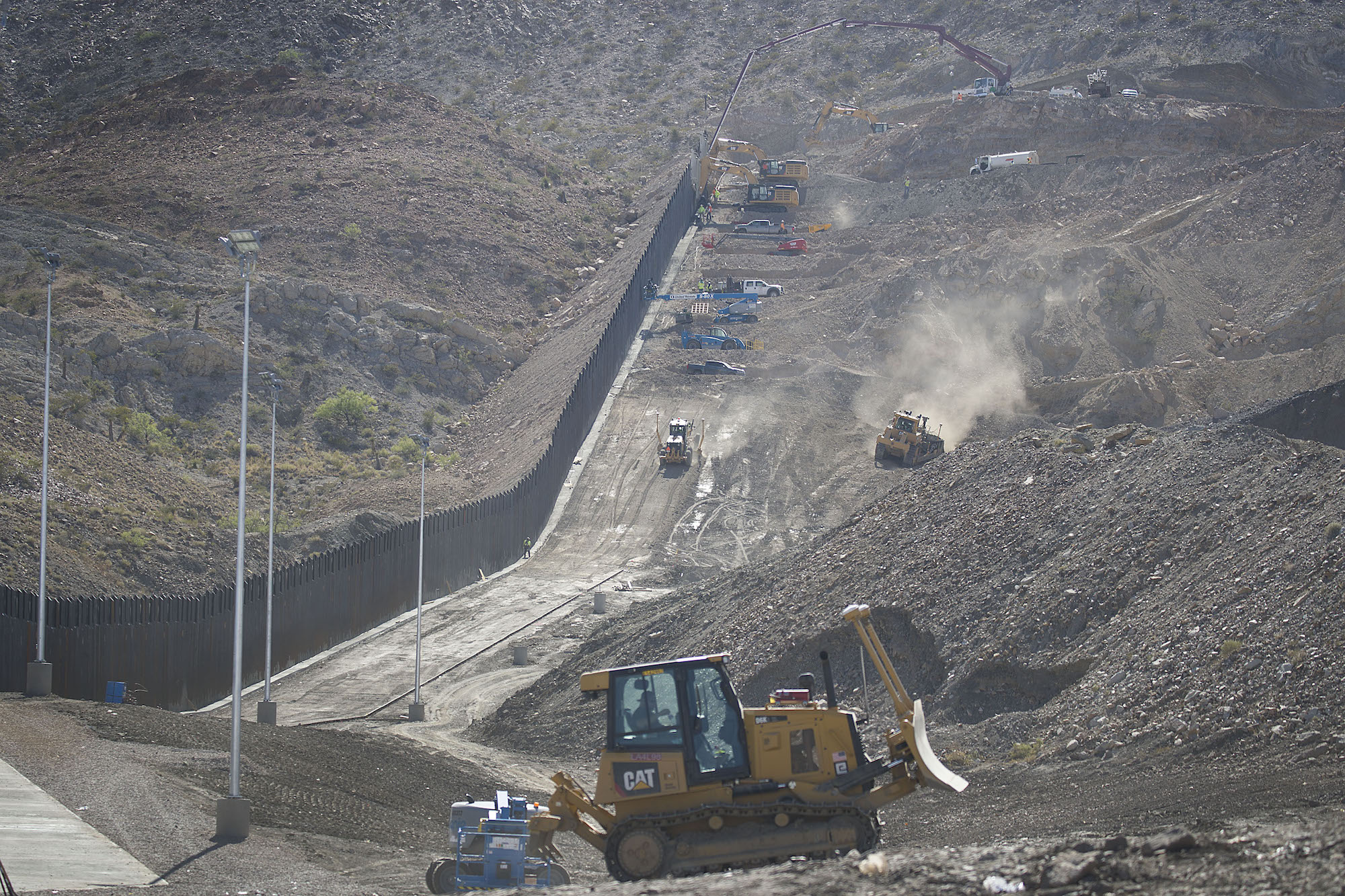
Destroying history for a wall: New border construction threatens Native American burial sites in Arizona
Using a little known law from 2005, the Trump administration has bypassed many federal laws protecting sacred and natural sites to build parts of his border…
Just over a two hour drive from Arizona’s two most populous cities lies the Organ Pipe Cactus National Monument, a national park named for the species of cactus that grows there.
It’s the only place in the U.S. where the organ pipe cactus grows in the wild, and in 1976, the more than 500-square-mile tract along the Mexico-U.S. border was declared a UNESCO biosphere reserve for its unique atmosphere, complete with flora and fauna only found in the Sonoran Desert.
Not only that, but the park also plays an important role in the history of its nearby human inhabitants. Organ Pipe shares an eastern border with the reservation of the Tohono O’odham Nation and contains many of the tribe’s sacred burial sites.
Last week, all that history and natural wonder came under attack as construction through the national park began on a portion of President Donald Trump’s border wall.
Specifically, crews started blasting away at a part of the park known as Monument Hill, where the tribe says Apache warriors were buried by members of the Tohono O’odham out of respect after their battles.
In response, representatives from the Tohono O’odham Nation reached out to their Congressman, Raúl Grijalva, who alleges the work started without consulting the tribe.
"This administration is basically trampling on the tribe's history — and to put it poignantly, its ancestry," said Grijalva.
In a Twitter video released today, he equated the wall’s construction through sacred land to the same rhetoric the president used in the aftermath of the U.S.’s attack on Iran that killed General Qassem Solemeini.
At the time, Trump had threatened further bombing Iran if it were to respond with more force, targeting 54 cultural sites.
“That cultural arrogance, that ethnocentrism of this administration, that we are it and nobody else matters, is exemplified in what is going on at the border in the O’odham nation,” said Grijalva.
This time, rather than with threats, the administration is getting its way thanks to a little known piece of legislation passed in 2005, known as the REAL ID Act.
RELATED CONTENT
The bill pertains predominantly to document security and changes some procedures surrounding driver’s license issuance and other identity papers. However, there is a section of the legislation that allows laws to be waived if they impede the construction of a border wall.
Normally, the Native American Graves Protection and Repatriation Act (enacted in 1990) would protect the sacred burial sites of Tohono O’odham, but the law has been waived for the border wall.
The sites are also vulnerable as public land part of a national park, rather than private land that is part of the reservation.
Before construction began, Grijalva had sent a letter to the Department of Homeland Security expressing “serious concern” over the wall’s construction on the sacred sites.
As part of the letter, he cited the Trump administrations frequent usage of the REAL ID Act to waive certain laws to get portions of the wall built.
"Of the 21 times the (REAL ID) waiver has been enacted since 2005, 16 of those instances have occurred in the last two and a half years," wrote Grijalva.
To date, he hasn’t received a response.
First reported by the AP, according to The Army Corps of Engineers, the portion of the wall being built through Organ Pipe is part of a bigger $891 million contract awarded by the Department of Defense to New Mexico-based construction company, Southwest Valley Constructors.
In addition to Organ Pipe, the contract also includes planned construction into the nearby Cabeza Prieta National Wildlife Refuge.











LEAVE A COMMENT: